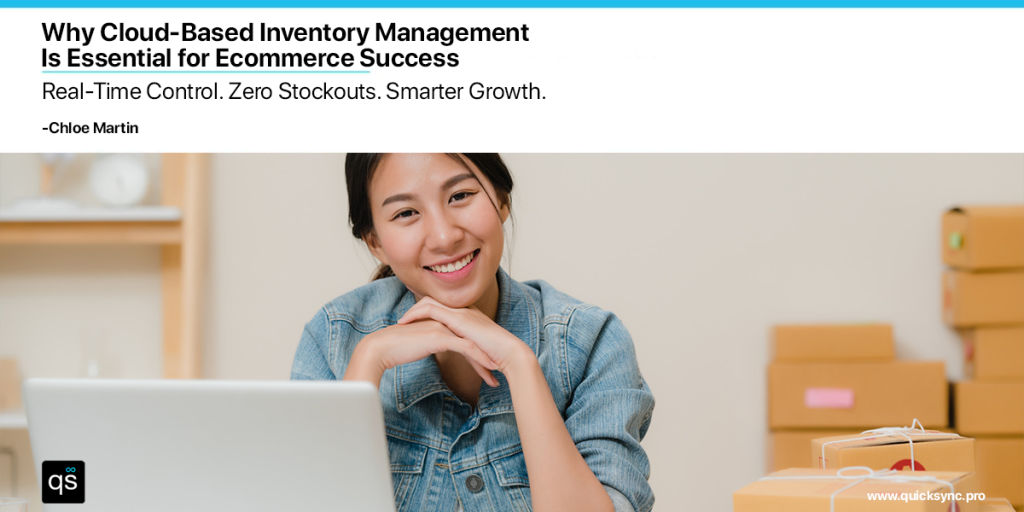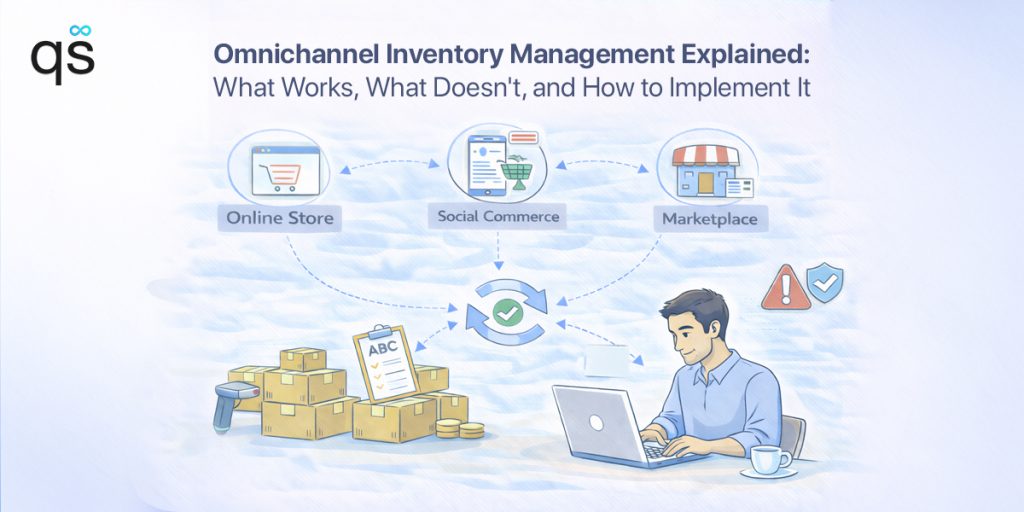If you’re thinking about selling on eBay—whether it’s to clear out some extra inventory, expand your online store, or launch a new side hustle—you’ll quickly face one important question: Should I open a personal account or a business account?
It might sound like a small choice, but picking the right type of eBay account can actually save you time, money, and a lot of hassle down the road. The account you choose affects your fees, selling tools, and even how buyers view your listings.
In this post, we’ll break down the differences between personal and business eBay accounts in simple terms, so you can decide which one makes the most sense for your goals—whether you’re just testing the waters or planning to grow a serious eCommerce brand. Let’s dive in!
Why Your eBay Account Type Matters
Many new eBay sellers assume the type of account isn’t a big deal—they just want to start listing products and making sales. However, eBay offers different account types, and choosing the right seller account is crucial for long-term success. Your account type can directly impact how easy (or difficult) it is to manage your business as it grows.
What’s the Difference? Personal vs Business
In a nutshell:
- Personal account (also known as an individual account or eBay personal account) → Best for casual selling
- Business account (also known as a business eBay account) → Best for regular or professional selling
Here’s how it breaks down:
Feature | Personal Account | Business Account |
|---|---|---|
Who it’s for | Individual account holders, occasional or casual sellers | Business seller, businesses, online stores, serious sellers |
Visibility | Sells under your personal name | Sells under your business name |
Selling tools | Basic tools only | Access to advanced selling and reporting tools |
Listing volume | Low (best for small sales quantity) | High volume friendly (handles larger sales quantity and bulk selling) |
Fees | Standard | Often lower or optimized for volume |
Trust factor | Looks casual | Presents as a business to buyers |
When to Choose a Personal eBay Account
A personal account is perfect if:
- You’re selling used or one-off items (think: garage sale, collectibles, or second-hand goods).
- You just want to test eBay as a platform before investing more effort.
- You don’t plan to turn eBay selling into a significant part of your business.
If you’re only listing a few items here and there—or simply curious about how eBay works—starting with a personal account is totally fine.
When a Business Account Makes Sense
You should absolutely consider a business account if:
- You’re selling new products or multiples of the same item.
- You already own an online store (like a Shopify store) and want to add eBay as another sales channel.
- You’re selling at volume (more than a few items per month).
- You want to build a long-term eBay presence with brand visibility.
- You plan to sync inventory or order data between Shopify and eBay (many integration tools require business-level eBay accounts).
In short, if your goal is to grow your online sales—not just casually sell—starting with a business account makes the most sense.
Benefits of Using a Business Account
Why do most serious sellers use eBay business accounts? Because it makes running an online store easier:
Branding: Your business name appears on listings, building trust and professionalism.
Lower fees: Depending on your seller category, you can qualify for lower fees on business accounts, including reduced final value fee, insertion fee, and various fees. Business accounts may also benefit from optimized fees levied on sales and products, helping you save on overall selling costs.
Annual subscription savings: Choosing an annual subscription for your eBay store plan can lower your monthly cost and provide a higher volume of free insertion fee listings, making it more cost-effective for high-volume sellers.
Advanced tools: Access to bulk listing, promotions manager, better reporting, and more advanced selling features, including enhanced management of product listings and the ability to create fixed price listings for efficient sales.
Tax advantages: Easier to track revenue and expenses for tax filing.
Integration-friendly: Works seamlessly with eCommerce tools like QuickSync or Shopify eBay sync apps.
Understanding the different eBay fees and fees levied is crucial for business sellers to maximize profitability and make informed decisions about their selling strategy.
Better Inventory Management with Business Accounts
One of the standout benefits of eBay business accounts is access to advanced inventory management tools. With a business account, you can take advantage of bulk listing and editing features, making it much easier to manage large numbers of products efficiently. These tools help you keep track of stock levels, update product details in batches, and avoid the risk of overselling.
Business accounts also allow for seamless integration with third-party inventory management software, giving you even more control and automation over your inventory processes. This is especially valuable for business sellers who operate across multiple platforms or need to sync inventory in real time.
By leveraging these inventory management features, business sellers can reduce manual errors, streamline their workflow, and ensure a better customer experience. Staying organized and proactive with your inventory is a key advantage in the competitive eBay marketplace, helping you boost sales and maintain a strong reputation.
Account Preferences and Management Tips
To get the most out of your eBay business account, it’s important to regularly review and update your account settings and preferences. Start by customizing your payment methods, shipping options, and return policies to align with your business goals and customer expectations. Make use of eBay’s seller hub, which provides valuable insights into your sales performance, customer feedback, and overall account health.
Business sellers should also take advantage of eBay’s built-in tools for managing promotions, tracking inventory, and analyzing sales trends. Keeping your account preferences up to date ensures you’re always operating efficiently and in line with eBay’s latest policies. Staying informed about updates to eBay business account features and best practices can help you stay ahead of the competition and deliver a better experience to your buyers.
By actively managing your account settings and leveraging the full suite of eBay business tools, you can optimize your selling process, improve customer satisfaction, and drive more sales on the platform.
Account Type and Business Growth: Planning for the Future
Choosing the right eBay account type is more than just a starting point—it’s a strategic decision that can shape your business’s future growth. If you anticipate selling large quantities, want to take advantage of higher selling limits, or plan to build a professional brand, a business account is the clear choice. Business accounts offer advanced features like better inventory management, access to promotion manager tools, and the ability to collect sales tax, all of which support business expansion.
With a business account, you also gain access to important benefits such as tax deductions, legal protection, and the ability to use a legal business name. These features not only help you save on taxes but also provide peace of mind as your business grows. If you plan to scale up, sell large quantities, or use selling assistant tools, starting with a business account ensures you’re ready for future opportunities.
By considering your long-term goals and the potential for business expansion, you can choose the eBay account type that best supports your ambitions. Planning ahead and leveraging the right tools will set you up for ongoing success in the eBay marketplace.
Can You Switch Later?
Yes—you can start with a personal account and upgrade to a business account later. But there are a few things to keep in mind:
- You’ll need to update your account details with eBay (including your business name and registration info).
- Some business tools or services may require verification.
- If you’re planning to scale up, it’s usually easier to start with a business account from day one.
How to Set Up the Right eBay Account
If you’re ready to create an eBay account, here’s exactly how to do it—step by step:
Step 1: Go to eBay’s Registration Page
Start by visiting eBay’s registration page. You’ll be prompted to choose between creating a personal account or a business account. Select the option that matches your selling goals—if you plan to sell regularly or run an online store, choose a business account. Choosing the right eBay seller account is important, as it determines the features and selling privileges available to you as an eBay seller.
Step 2: Enter Your Business Details
For a business account, you’ll need to provide your registered business name (or trade name), a business email address, and a phone number. This is what eBay and your customers will use to contact you and identify your store.
Step 3: Add Your Bank Account Information
Next, eBay will ask you to link your bank account so you can receive payments from your sales. This ensures that when customers purchase from your store, the funds will go directly to your account.
Step 4: Define What You’ll Sell
Finally, think about what products you plan to list on eBay. Having a clear idea of your product range will help you set up your listings correctly and target the right audience from day one. If you plan to become a selling assistant eBay, you may need to meet specific selling criteria, such as sales volume or account status, to qualify for this role.
Once you’ve completed these simple steps, your eBay account will be ready—whether personal or business—and you’ll be ready to start selling. Setting up the correct eBay seller account is the foundation for success as an eBay seller.
Final Thoughts: Choose What Fits Your Goals
Choosing between an eBay personal vs business account really comes down to what you want out of your eBay selling experience.
If you’re just dipping your toes in the water or clearing out old inventory, a personal account will work fine. But if you’re looking to build a serious online store, grow your brand, and integrate eBay with platforms like Shopify, a business account is the way to go.
Starting off with the right account saves time, simplifies your workflow, and positions you to scale successfully. And if you do choose to expand into multi-platform selling, a business account makes the process smoother from the start.



